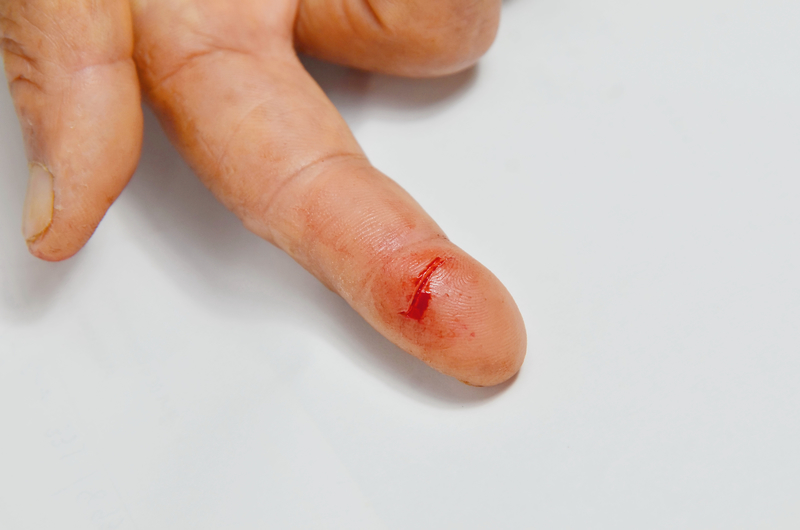If you’ve ever cut yourself so badly that you’ve ended up in the emergency room getting stitches, then you know that there’s such a thing as a tissue adhesive. The emergency room workers probably referred to it as superglue. However, tissue adhesive (the medical term) and superglue (which you can buy at any drugstore) are quite different. Should you use superglue to close a wound?
Some Information about Superglue:
Superglue comes in a variety of formats. It’s inexpensive and easy to obtain. Superglue can hold together plastics, ceramics, and even some types of metal and wood. If you need to fix things – not people – then superglue is what you’d reach for. It contains a chemical compound that can harm human tissue, making it problematic in the case of closing a wound.
Another issue with superglue is the fact that it heats up as it dried. This is part of the curing process. While it’s not a problem when gluing inanimate object together, it will hurt quite a bit (more than the wound even) if it’s spread on an open cut. You don’t want to make things even more painful than they already are.
The Basics of Tissue Adhesive:
This is a specially made compound designed to hold flesh wounds closed. It will work on small wounds with straight edges that are in areas of the body that don’t see a lot of action. If you accidentally split part of your scalp open, it will more than likely be closed up with tissue adhesive. If you have a gunshot wound or a very deep cut on your hand, then it won’t work as well.
[Video] Discover almost all the edible and medicinal plants in North America, including a powerful painkiller, a driveway antibiotic weed, a back-pain relief plant, and a lot, lot more…
Tissue adhesive is useful but may be hard to obtain, unless you have access to a medical supply store and the credentials to purchase it. If you even make it that far, you’ll find out that tissue adhesive is not cheap and it has a shelf life. While it makes sense to store it in your first aid kit, you may have trouble getting it and paying for it. But if you can access it (hint: there’s a veterinary version available on the open market for a relatively low price), get yourself some.
But Can You Use Superglue to Close a Wound?
The answer here is… kind of. If you have absolutely no other options and are in a location where you can get the glue removed quickly in an emergency room, then maybe it will work. Maybe. We absolutely do NOT recommend doing this. Honestly, a better option is caring a sterilized needle and some strong thread so that you can sew up your own wounds. That will be easier to “fix” when you get actual medical care, and it will be far less harmful than superglue. You can also use butterfly strips, hemostatic powder, and even hemostatic gauze. These will keep you from continuing to bleed until you can get to the experts, and it will cause less damage in the long run. These things are easier to obtain as well!
In the end, the answer is no – you shouldn’t use superglue to close a wound. Superglue is not the same thing as a tissue adhesive. It will cause more damage in the long run since the glue will burn as it dries and will need to be removed at the hospital so that a real wound closure can be applied. You shouldn’t use superglue for anything more than fixing things around your house. It shouldn’t be treated as a medical device because it isn’t one.



